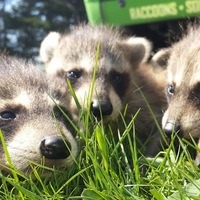Rabies is a common virus among wild species across the world, which affects animals once passed through blood, bodily fluids, bites, and scratches. It is one of the major concerns when it comes to accidental encounters with wild animals. Though the disease hasn’t affected a significant number of people throughout the decades, it poses a large risk for farm animals and pets. A recent outbreak in 2016 caused for concern that a rising number of rabies-affected skunks and raccoons could affect surrounding homes and pose a risk for the health of people, pets, and farm animals. Still, many are wondering if the fear is justified due to the lack of evidence that a growing number of recorded raccoon rabies is affecting the community.
Eliminating Rabies in Ontario
For purposes of eliminating rabies from the Hamilton area, the Ministry of Natural Resources and Forestry (MNRF) will be providing $4 million worth of bait vaccines against raccoon rabies. Raccoon rabies reached a peak in 2016, with 200 recorded cases and has drastically declined since MNRF plans on eliminating the virus through their vaccine bait program. Some of the actions MNRF plans to take include spreading the bait drops by hand, as well as through aircraft. Hundreds of traps are to be set across Burlington and Hamilton in order to vaccinate and release raccoons and skunks.
Rabies in skunks and raccoons reached a critical point in 2016, when approximately 300 animals tested positive, compared to only 13 in 2018. There is a wildlife advocacy group criticizing the strategy not only as being a waste of money but also that this is not as serious of a problem as they claim. Their opinion is that vaccinating the farm animals and pets would be a more cost-effective solution. The wildlife advocacy argues that the level or risk promoted by the MNRF isn’t backed by the facts since there’s been only one case of a fatality in humans recorded so far. The public became aware of the rabies outbreak in 2015 after testing a raccoon that got picked up by the HAS and got into a fight with two more dogs that were driving in the van. After this incident, more testing followed which indicated that the rabies was spreading.
Even though cute, warning signs for rabies should always be followed.Have You Seen a Raccoon on Your Property? Call Skedaddle for Humane Raccoon Removal
Regardless where you stand when it comes to fear of rabies, the recent outbreak calls for caution and applying serious preventive measures. Keep in mind that, though fatal cases of rabies infections are truly rare, it is only due to the extreme caution communities have towards wild animals and responsible strategies used to contain it. Pets are protected with regular vaccinations, while people preserve their health with a cautious approach to wild animals. Keeping the circumstances in mind, Skedaddle offers a range of preventive raccoon removal services to keep raccoons and skunks away from your home. To prevent any risk from contracting rabies, our technicians will inspect your property and suggest the right improvements which will keep wild animals from breaking in. This is one small effort you can make to secure the safety and health of your family and home for years to come.



